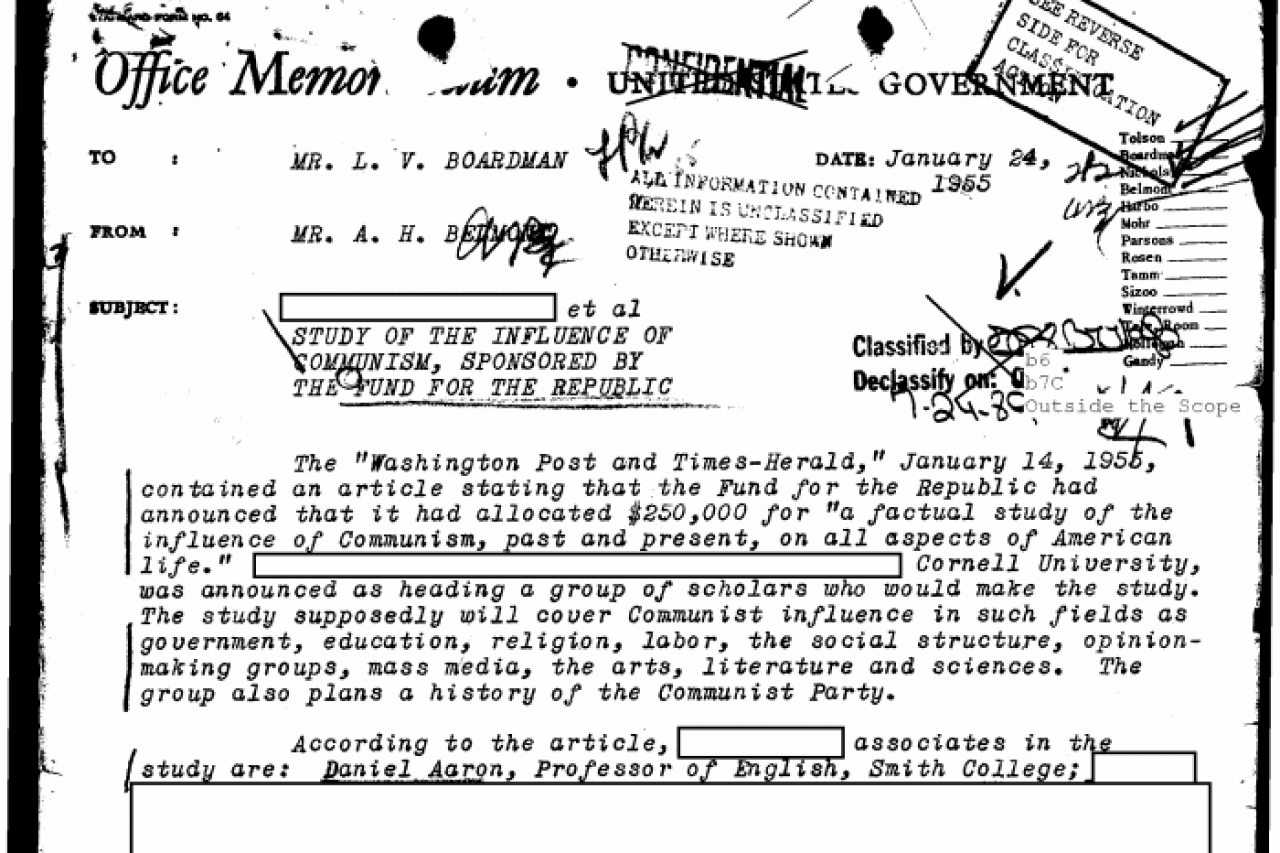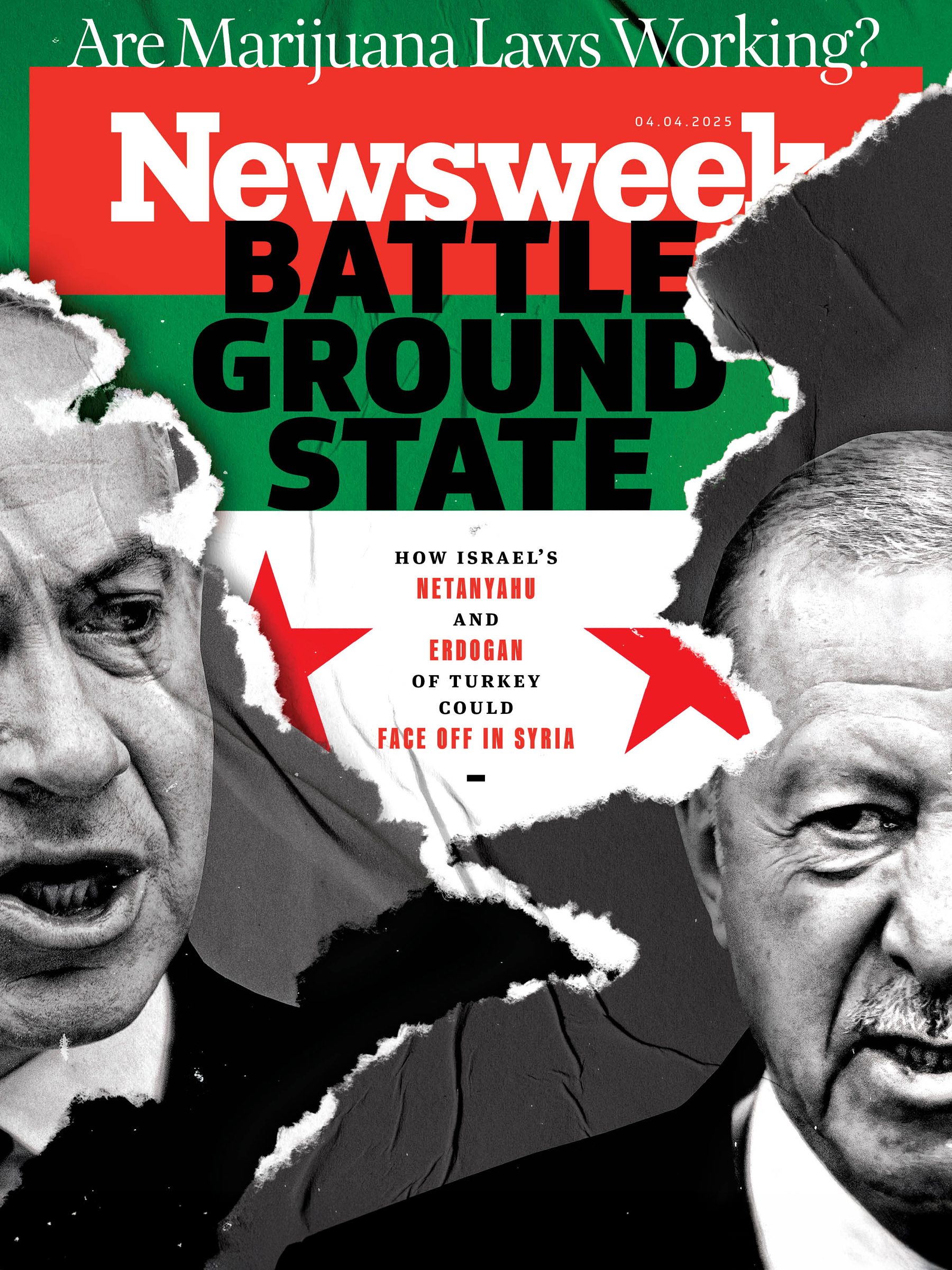
An exciting but underappreciated genre of writing is the Great American FBI File. Think of government agents as taxpayer-funded paparazzi, invading the lives of private citizens for the supposed good of the country. There are files on many popular figures, including John Lennon, Lucille Ball and Biggie Smalls. Writer William T. Vollman famously found his own file and dug through it for a great long Harper's essay. Say what you will about the FBI, but it has decent taste in artists.
Our government's massive surveillance apparatus naturally results in large stacks of files. Imagine the warehouse at the end of Raiders of the Lost Ark, filled with detailed dossiers on suspected Communists. Many of them are open to the public, or at least open-ish. One just has to ask for them, via a Freedom of Information Act request. Not all information is free, of course. There are nine exemptions. Exemption 1, for example, locks down any files that might compromise the "interest of national security." Exemption 6 "protects information that would constitute a clearly unwarranted invasion of personal privacy of the individuals involved." The latter privacy exemption becomes void after the individual in question dies.
Related: Dispatches from Facebook's Full Circle Cafe
Considering this, artist and activist Parker Higgins figured out a way to automate the process of releasing records. No, not by murdering people; that would be terrible and time-consuming. He created a program that monitors the New York Times obituary section. Anytime a new article appears, it automatically files a FOIA request for that recently deceased person. He calls it FOIA the Dead.
Some FBI file faces pic.twitter.com/RsaGOVKEhx
— FOIA The Dead (@foiathedead) March 3, 2017
Higgins describes it as a "morbid transparency project." So far, it's released 2,136 pages of FBI records. It features files on 28 public figures, including Walter Kohn, Hedy Epstein, Morley Safer and King Bhumibol Adulyadej. The documents—if there are any available—typically arrive by mail, saved on a CD, though occasionally they're printed out. Each figure gets a page on the site with a brief description and scans of his or her documents. On the project's Twitter account (@foiathedead), Higgins posts ephemera from the files, things like odd FBI stamps ("Do Not Destroy") and assorted black-and-white pics of stern men.
The inspiration for the project grew out of a routine. "For a long time before starting the project, I had sort of internalized the act of sending a FOIA request as a marker of an admired celebrity's death," says Higgins. "I think it was after Lou Reed died that I thought: I should really be doing this in a more standardized way, because the really surprising FBI file is naturally going to be the one that nobody expects exists."
So: automation. The Times obituaries section, while far from perfect, provides a reliable dataset. Those covered by it are both dead and usually notable enough to have earned a file. It's especially likely considering the average age of those covered by the section at this point in time. "A lot of the people who are showing up in the obituaries pages were active during eras of what we now consider real FBI overreach: the Red Scare, to civil rights crackdowns, to COINTELPRO and similar. In many cases, all of the above," says Higgins. "So it's actually pretty plausible that anybody who appears in a New York Times obituary in 2017 could have a file for no good reason."
The files typically include large blank sections of redacted information, scraps from news articles about the subjects, and any other notes or documents the FBI was able to collect on the subject. The record for literary critic Daniel Aaron (who died on May 3, 2016, at 103 years old) focuses largely on his study of the role of Communism in American life. It also notes that in 1938 he "was reported to have suggested that a petition be circulated requesting the extension of a teaching contract for a teacher alleged to be a Communist Party member." Another record, for journalist Morley Safer (who died on May 19, 2016, at 84 years old) features an all-caps letter from FBI Director J. Edgar Hoover, requesting "information re: subject which can be passed to Marine Corps" because "recently he has been giving particularly unfavorable radio accounts of Marine Corps activities in South Vietnam," including an "account of recent killings of innocent victims in several South Vietnam Villages."
Excerpt from a genuinely terrifying threat letter sent to a US senator. Made it into his FBI file. pic.twitter.com/DIYdU0oO1Q
— FOIA The Dead (@foiathedead) October 6, 2016
If there's an ideal type of record to uncover, it would be something like what Vollman unearthed. The author discovered, after filing an FOIA request for himself, that for a brief period, unbeknownst to him, he was suspected to be the Unabomber. "I always think, like, What if he hadn't gone through with filing his own FOIA request and getting that information out himself?" says Higgins. "That's really where this project would prove itself, is in uncovering the unknown surveillance that nobody would even think to look for."
The documents have an interesting aesthetic appeal. "The old-fashioned typewritten pages with stamps and redactions give all the documents I get a real look-and-feel that's a bonus over and above any of the information they provide." But more than that, there's also a meta-voyeuristic element to the project. This isn't just about the subjects, but their pursuers. The files allow us, in some sense, to watch the FBI watch. "It's like The Lives of Others, where the real interest is in what the FBI surveillance operations choose to focus on," adds Higgins. "It's actually a really great contrast with the obituaries, which are in some sense charged with presenting a holistic sense a person's life, and the FBI drills down on one tiny thing, like whether or not they went to some Communist meetings four decades earlier."
The project reveals, in some small way, how surveillance works. Perhaps best of all, it efficiently opens records to the public, offering slightly more government transparency.
The FBI has been reticent about FOIA the Dead. When asked about the project, its press office replied, "Unfortunately, we do not have a comment for you." Higgins is fairly certain it isn't a fan. "It's pretty clear to me that they don't like the project, and some of their acknowledgment letters have started to sound a little exasperated," he says. "They have—as of this month—stopped accepting emailed FOIA requests, and it's easy to speculate that has something to do with me."
It might be enough to get him a file of his own.






